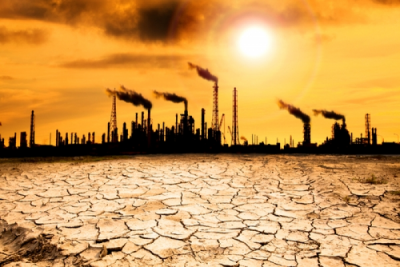A Matter of Fifty Degrees: Climate Change in Australia

A country baked to the core, its citizens roasted, an electricity grid battered to its limits. Capital cities trapping scorching heat, toasting its citizens and assaulting the young, the elderly, the infirm with temperature fluctuations. This is the vision of Australia by the end of this century according to an Australian National University study released earlier this month.
The study, published in Geophysical Letters, insists that,
“Understanding the magnitude, as well as the frequency, of such future extremes [in temperature] is critical for limiting detrimental impacts.”[1]
Glumly, the authors note how,
“The severity of possible future temperature extremes simulated by climate models in this study poses serious challenges for preparedness for future climate change in Australia.”
A few of the implications are pointed out by the chief investigator of the project, Dr. Sophie Lewis of the Fenner School of Environment and Society and the Centre of Excellent for Climate System Science at ANU.
“We have to be thinking about how we can be prepared for large population groups commuting to and from the CBD on these extremely hot days, and how we send young children to school on 50C days, how our hospitals are prepared for a larger number of admissions of young or old people, and how our infrastructure can cope with it.”
As with so much in the climate change literature, the tone is one of mild hope tempered by catastrophic prospect, a breathless urgency tinged with a slight degree of panic. Assumptions are made and duly factored in.
The ANU study, for instance, presumes a credible effort to contain global warming to 1.5C, the target set by the Paris Agreement. Even so, claims Lewis,
“A lot of warming is locked into the climate system and we really have to be prepared for extremes in the future to get much worse than they are now.”
According to Lewis, the climate modelling “projected daily temperatures of up to 3.8 degrees Celsius above existing records in Victoria and New South Wales, despite the ambitious Paris efforts to curb warming.”[2]
The study’s primary focus is on major cities, and, as is the Australian tendency, the two largest tend to figure prominently as sites of study. Prepare, city dwellers of Sydney and Melbourne, for those 50C days. Prepare, suggests Sydney’s Deputy Lord Mayor Jess Miller, for melting public transport. Anticipate “heat continents” with “grey infrastructure and roads and buildings absorbing all that heat”.
Do such reports and findings matter? In Australia, the battles rage, the sceptics froth. The ABC news site invited readers to advance suggestions as to how best to cope with such temperature rises. There is flippancy, disbelief and the usual scepticism that anyone should even bother.
Forget the model mad scientist, runs this line of opinion: temperature rises may or may not be rising and suggestions that the human race is set for catastrophe are exaggerated, if not hysterical. There is denial, even a good smattering of abuse. Climate change models are, simply, models.
A certain commentator by the name of “Rational” found Lewis and her findings tiresome, and duly employed the oldest tactic in the manual of debate by simply ignoring her findings:
“Blah Blah Blah again from Dr. Sophie Lewis, my guess is she is around 30 years of age, most records broken this year are only 10/15 years of data please show me otherwise. But keep paying the good Dr in the interim.”[3]
Robbert Bobbert simply chose outright, abusive dismissal.
“More delusion and those addicted to their Computer Model Toys.”
This was all a “Sham Scam” and Lewis and those “ABC acolyte journalists” were hardly going to be around in 83 years to falsify it. “Maybe the baby that this hysterical scientist wrote about will be around to check.”
The human instinct to embrace the driving force of Thanatos, to write collective suicide notes and be cast into oblivion is well known. Entire civilizations have collapsed for failing to adapt and adjust. Evidence, even if disconcertingly staring in the face, can be refuted with pig-headed stubbornness.
In Australia, a persistent, coal-coloured scepticism remains about climate and its effects. Where mining remains the holder of orb and sceptre, a rational discussion about environment, let alone climate, is always going be stunted. The good life, even if warmer, is set to continue.
The Tony Abbots will continue to praise rising heat on the global stage, and, if confounded by their impacts, suggest that it could hardly be happening. Such are the views of those in denial. Chin-up and understatement are seemingly in order, and that was duly supplied Miller herself. “It’s not great news, obviously.”
Dr. Binoy Kampmark was a Commonwealth Scholar at Selwyn College, Cambridge. He lectures at RMITUniversity, Melbourne. Email: [email protected]

